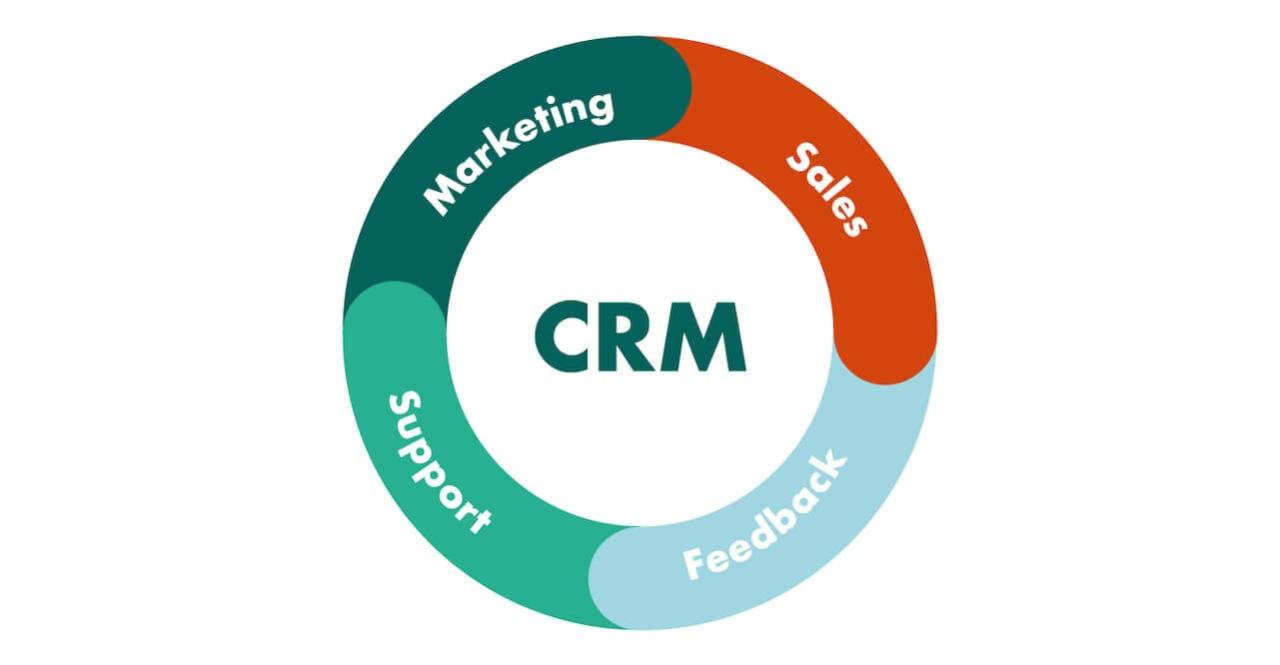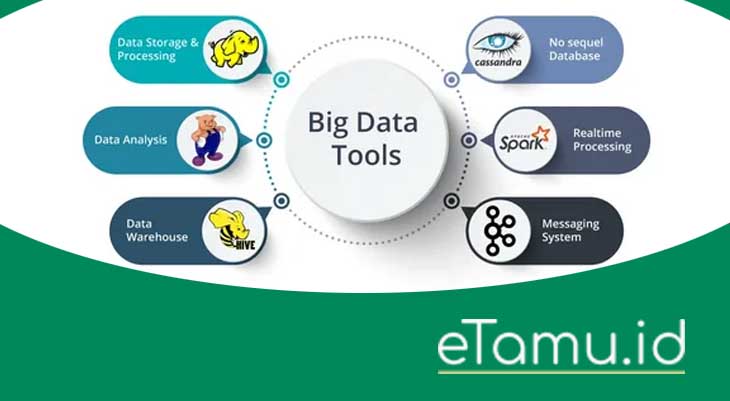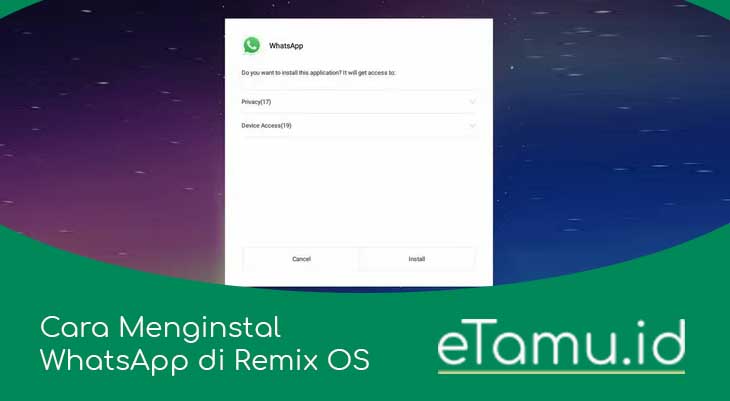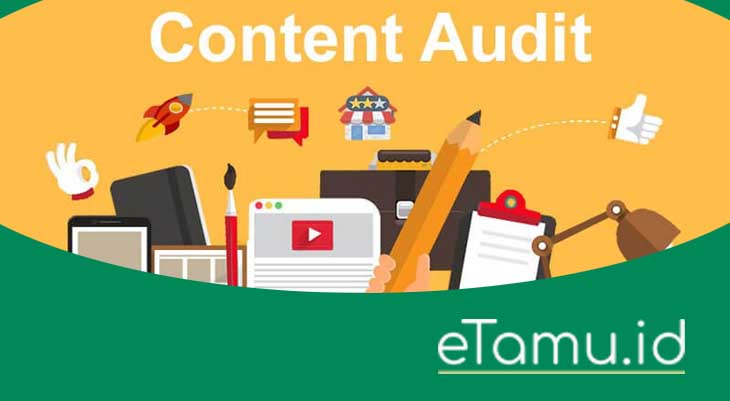Integrating a booking app with CRM and other business tools offers significant advantages for streamlining operations and enhancing customer relationships. This integration allows for seamless data flow between various platforms, eliminating manual data entry, reducing errors, and ultimately improving efficiency. By connecting these systems, businesses can gain a more holistic view of their operations, leading to better decision-making and enhanced customer service.
This comprehensive guide explores the benefits, technical aspects, tool selection, security considerations, and implementation strategies involved in successfully integrating a booking app with your existing CRM and other business tools. We will delve into various integration methods, data synchronization techniques, and crucial security protocols to ensure a smooth and secure integration process. The goal is to equip you with the knowledge necessary to make informed decisions and effectively leverage the power of integrated systems.
Benefits of Integration
Integrating your booking app with your CRM and other business tools offers significant advantages, leading to a more streamlined and efficient operation. This interconnected system enhances customer relationships, improves internal processes, and ultimately boosts your bottom line. By breaking down data silos and automating tasks, you can free up valuable time and resources to focus on strategic growth.
The impact on various aspects of your business is substantial. Efficient data flow between systems reduces manual data entry, minimizing errors and saving time. This allows for a more proactive and personalized approach to customer interaction, strengthening customer loyalty and driving repeat business.
Improved Customer Relationship Management
Connecting your booking app to your CRM provides a 360-degree view of your customers. This unified view allows your team to access crucial booking information, past interactions, and customer preferences directly within the CRM. This enables personalized communication, targeted marketing campaigns, and proactive customer service. For instance, you can automatically send personalized reminders about upcoming appointments or follow up after a service to gather feedback, enhancing the overall customer experience.
The result is improved customer satisfaction and increased customer lifetime value.
Streamlining operations involves integrating a booking app with your CRM and other business tools for a cohesive workflow. This interconnectedness mirrors the benefits of integrating smart home technology into traditional interior styles , where disparate systems work together seamlessly. Ultimately, efficient integration, whether in a business context or a home environment, leads to improved productivity and a more enjoyable experience.
Streamlined Operational Processes
Integration streamlines operational processes by automating tasks and improving data flow. For example, new bookings automatically update your calendar, preventing double-bookings and scheduling conflicts. Customer information is automatically updated across all systems, ensuring data consistency and accuracy. This automation minimizes manual intervention, reduces the risk of human error, and frees up staff to focus on more strategic tasks.
Imagine the time saved by eliminating the need to manually transfer booking details from one system to another.
Workflow Comparison: Before and After Integration
The following table illustrates the significant improvements in workflow efficiency achieved through integration.
| Process Step | Before Integration | After Integration | Improvement |
|---|---|---|---|
| New Booking Received | Manually entered into booking app and CRM; potential for double entry errors. | Automatically entered into both booking app and CRM; eliminates manual data entry. | Reduced errors, saved time, increased efficiency. |
| Customer Information Update | Manually updated in both systems; potential for inconsistencies. | Automatically updated across all systems; ensures data consistency. | Improved data accuracy, eliminated inconsistencies, saved time. |
| Appointment Reminders | Manually sent or scheduled; prone to errors and omissions. | Automated reminders sent based on booking details; ensures timely reminders. | Improved customer communication, reduced no-shows, increased customer satisfaction. |
| Reporting and Analytics | Data compiled manually from multiple sources; time-consuming and prone to errors. | Data automatically aggregated and analyzed; provides real-time insights. | Improved data analysis, faster decision-making, better business insights. |
Technical Aspects of Integration
Integrating a booking app with your CRM and other business tools requires careful consideration of various technical aspects. Successful integration hinges on choosing the right API methods, implementing robust data synchronization, and proactively addressing potential challenges. This section details the key technical considerations to ensure a smooth and efficient integration process.
API Integration Methods
Selecting the appropriate API integration method is crucial for efficient data exchange. Three common methods are REST, SOAP, and GraphQL. REST (Representational State Transfer) APIs are generally preferred for their simplicity, scalability, and widespread adoption. They utilize standard HTTP methods (GET, POST, PUT, DELETE) to interact with resources, making them relatively easy to implement and maintain. SOAP (Simple Object Access Protocol) APIs, while robust and highly structured, are often more complex to implement and less flexible than REST.
Seamlessly integrating your booking app with your CRM and other business tools is key to operational efficiency. Understanding how to leverage this integration for maximum impact directly relates to exploring effective monetization strategies for a successful booking application , which in turn informs the best ways to structure your data flow and reporting within your integrated systems.
Ultimately, smart integration boosts both profitability and operational smoothness.
GraphQL, a newer approach, allows clients to request only the data they need, minimizing data transfer and improving efficiency. For booking app integration, REST APIs are typically the most suitable due to their ease of use and widespread compatibility. The choice ultimately depends on the specific APIs offered by the booking app and other integrated systems.
Data Synchronization Strategies
Effective data synchronization ensures data consistency across all integrated systems. Several strategies exist, each with its own strengths and weaknesses. Real-time synchronization offers immediate updates, ensuring data consistency but potentially increasing the load on the systems. Batch synchronization, on the other hand, processes data in batches at scheduled intervals, reducing the real-time load but introducing a slight delay in data updates.
A hybrid approach, combining real-time and batch synchronization, can provide a balance between efficiency and data consistency. For example, critical booking details might be synchronized in real-time, while less time-sensitive data can be handled in batches. The optimal strategy depends on the specific needs and performance requirements of the integrated systems.
Potential Integration Challenges
Integrating systems can present various challenges. Data conflicts can arise if different systems use conflicting data formats or structures. For instance, a discrepancy in date and time formats between the booking app and CRM could lead to errors. API limitations, such as rate limits or lack of specific functionalities, can also hinder integration. Furthermore, maintaining data consistency across multiple systems requires careful planning and robust error handling.
Addressing these challenges requires thorough testing, robust error handling mechanisms, and potentially data transformation processes to ensure compatibility between different systems. For example, data cleansing and transformation may be necessary to reconcile inconsistencies in data formats.
Data Flow Diagram
The following diagram illustrates the data flow between the booking app, CRM, and other business tools. Assume a scenario where a customer books a service through the booking app.
Diagram: Imagine a box labeled “Booking App” at the left. An arrow points right to a box labeled “CRM.” Another arrow points from the “Booking App” box right to a box labeled “Payment Gateway.” A third arrow points from the “Booking App” box right to a box labeled “Calendar/Scheduling Tool.” Arrows point from each of these three boxes to a final box labeled “Business Intelligence Dashboard.” All arrows are labeled “Data Flow.”
Caption: This diagram shows the flow of data after a customer books a service. The booking app sends booking details (customer information, service details, dates, and times) to the CRM for customer relationship management. Simultaneously, payment information is sent to the payment gateway for processing. The booking details are also sent to the calendar/scheduling tool to update the availability.
Streamlining your business operations often involves integrating a booking app with your CRM and other tools for a cohesive workflow. A crucial aspect of this integration is ensuring secure transactions, which necessitates careful consideration of how you integrating payment gateways into a booking application securely. Properly integrating these gateways not only enhances user experience but also strengthens your overall business infrastructure by simplifying payment processing within your integrated booking system.
Finally, all this data is aggregated and sent to the business intelligence dashboard for analysis and reporting.
Choosing the Right Tools
Selecting the appropriate CRM and booking app for seamless integration is crucial for optimizing business efficiency and enhancing customer experience. The right combination will streamline operations, improve data management, and ultimately drive revenue growth. Careful consideration of various factors is essential to ensure a successful integration.
CRM Systems for Booking App Integration
Several CRM systems offer robust integration capabilities with booking applications. The best choice depends on your specific business needs and existing infrastructure. Salesforce, a market leader, provides extensive customization and scalability, making it suitable for large enterprises. Zoho CRM, a more affordable option, offers a good balance of features and ease of use, ideal for small to medium-sized businesses.
HubSpot CRM, known for its marketing automation features, integrates well with booking apps to provide a comprehensive marketing and sales solution. These systems differ in their pricing models, feature sets, and ease of integration. Consider factors like user-friendliness, scalability, and the availability of pre-built integrations to make an informed decision.
Successfully integrating a booking app with your CRM and other business tools streamlines operations significantly. A key element of this integration is ensuring accurate, up-to-the-minute information; this requires efficiently implementing real-time availability updates in a booking system. This ensures your CRM always reflects the most current booking status, preventing double-bookings and improving overall client management within the integrated system.
Popular Booking Apps and Their Integration Capabilities
Numerous booking applications offer varying levels of CRM integration. Acuity Scheduling provides straightforward integrations with popular CRMs like Salesforce and HubSpot, allowing for automated appointment updates and lead management. Similarly, Calendly boasts integrations with several CRMs, streamlining appointment scheduling and customer data synchronization. Square Appointments, often used for service-based businesses, also offers CRM integrations, though the depth of integration may vary depending on the chosen CRM.
These apps often leverage APIs or pre-built connectors to facilitate data exchange with CRM systems. The choice of booking app should align with the features offered by your chosen CRM and your specific business requirements.
Essential Features for Booking App and CRM Selection, Integrating a booking app with CRM and other business tools
Choosing a booking app and CRM requires careful consideration of several key features. The seamless flow of information between the two systems is paramount. The following list Artikels essential features to look for:
- Two-way data synchronization: Real-time updates between the booking app and CRM are critical for maintaining accurate data.
- Automated appointment reminders and notifications: Enhance customer experience and reduce no-shows.
- Customizable fields and workflows: Tailor the integration to your specific business processes.
- Reporting and analytics: Gain insights into booking trends and customer behavior.
- User-friendly interface: Ensure ease of use for both staff and customers.
- Robust security features: Protect sensitive customer data.
- Scalability and flexibility: Adapt to your business growth and changing needs.
- API access: Enables custom integrations and extensions.
Booking App CRM Integration Comparison
The following table compares three popular booking apps based on their CRM integration features:
| App Name | CRM Compatibility | Integration Methods | Pricing |
|---|---|---|---|
| Acuity Scheduling | Salesforce, HubSpot, Google Calendar, and others | API, pre-built integrations | Subscription-based, varying plans |
| Calendly | Salesforce, HubSpot, Zoho CRM, and others | API, pre-built integrations | Subscription-based, varying plans |
| Square Appointments | Limited direct CRM integrations; often requires third-party tools | API, third-party integration apps | Transaction-based fees and subscription options |
Security and Data Privacy
Integrating a booking app with your CRM and other business tools necessitates robust security measures to safeguard sensitive customer data. Failing to prioritize security can lead to significant financial losses, reputational damage, and legal repercussions. This section details the essential protocols and best practices for protecting your data and ensuring compliance with relevant regulations.Protecting customer data is paramount.
Data breaches can severely damage a business’s reputation and lead to hefty fines. Therefore, a multi-layered security approach is crucial.
Data Encryption and Access Control
Data encryption is the process of converting readable data into an unreadable format, rendering it inaccessible to unauthorized individuals. This protects data both in transit (between systems) and at rest (stored on servers). Strong encryption algorithms, such as AES-256, should be implemented. Access control involves restricting access to sensitive data based on user roles and permissions. This ensures that only authorized personnel can view, modify, or delete specific information.
Implementing role-based access control (RBAC) is a best practice. For example, a receptionist might only have access to booking details, while a manager could access customer financial information.
Compliance with Data Privacy Regulations
Adherence to data privacy regulations, such as the General Data Protection Regulation (GDPR) in Europe and the California Consumer Privacy Act (CCPA) in California, is mandatory. These regulations Artikel strict rules for handling personal data, including obtaining consent, ensuring data security, and providing individuals with control over their data. Compliance requires careful consideration of data processing activities, data retention policies, and mechanisms for data subject requests (e.g., right to access, right to be forgotten).
Seamlessly integrating your booking app with your CRM and other business tools streamlines operations significantly. A key aspect of this integration involves robust customer support, and understanding the nuances of customer support features for a booking application is crucial. This ensures efficient issue resolution and enhances the overall user experience, ultimately contributing to the success of your integrated business systems.
Failing to comply can result in substantial fines. For instance, a company failing to meet GDPR requirements could face fines up to €20 million or 4% of annual global turnover.
Security Checklist for Integration
Prior to implementing the integration, a thorough security assessment is essential. The following checklist Artikels key considerations:
- Data Encryption: Verify that all data transmitted between the booking app and other systems is encrypted using a strong algorithm (e.g., AES-256).
- Access Control: Implement role-based access control (RBAC) to restrict access to sensitive data based on user roles and responsibilities.
- Regular Security Audits: Conduct regular security audits and penetration testing to identify and address vulnerabilities.
- Data Loss Prevention (DLP): Implement DLP measures to prevent sensitive data from leaving the organization’s control.
- Vulnerability Management: Establish a process for identifying, assessing, and mitigating security vulnerabilities in all integrated systems.
- Incident Response Plan: Develop a comprehensive incident response plan to handle security breaches effectively.
- Compliance with Regulations: Ensure compliance with all relevant data privacy regulations (e.g., GDPR, CCPA).
- Secure API Integration: Utilize secure APIs with appropriate authentication and authorization mechanisms for communication between systems.
- Regular Software Updates: Keep all software components updated with the latest security patches.
- Employee Training: Provide employees with regular security awareness training to educate them about best practices and potential threats.
Implementation and Maintenance: Integrating A Booking App With CRM And Other Business Tools
Integrating a booking app with your CRM and other business tools is a multi-stage process requiring careful planning and execution. Success hinges on a well-defined implementation strategy, robust testing, and a proactive maintenance plan. This section details the key steps involved, from initial setup to ongoing support.
Step-by-Step Integration Process
The integration process typically involves several distinct phases. First, a thorough assessment of your existing systems and the booking app’s APIs is crucial. This involves identifying data points to be exchanged and establishing clear communication protocols. Next, the development phase begins, where developers configure the connection between the systems, mapping data fields and establishing the flow of information. This stage may require custom code development depending on the complexity of the integration.
Following development, rigorous testing is performed to ensure data accuracy and system stability. Finally, the integrated system is deployed, and ongoing monitoring and maintenance commence.
Testing and Validation Strategies
Testing is paramount to ensure a seamless integration. This involves unit testing (individual components), integration testing (interactions between components), and user acceptance testing (end-user validation). Unit testing verifies the functionality of individual modules, such as the booking confirmation process or data synchronization. Integration testing assesses the interaction between the booking app, CRM, and other tools, confirming data flows correctly.
User acceptance testing involves real users testing the integrated system in a realistic environment to identify usability issues and potential bugs. Automated testing tools can significantly improve efficiency and accuracy during this phase. For example, automated scripts can verify that booking data is accurately reflected in the CRM after a booking is made through the app.
Ongoing Maintenance Requirements
Post-implementation, ongoing maintenance is crucial for long-term success. This includes regular software updates for all integrated systems to address bugs, improve security, and add new features. Data backups and disaster recovery planning are also essential to protect against data loss. A proactive monitoring system should be in place to detect and address any performance issues or errors promptly.
This could involve setting up alerts for failed data synchronization or unusual activity levels. Regular security audits are also vital to maintain data integrity and user privacy. For instance, regularly updating security patches on all integrated systems and implementing multi-factor authentication are key security measures.
Sample Implementation Plan (Gantt Chart Description)
The following describes a sample Gantt chart for integrating a booking app with a CRM and email marketing platform.| Task | Duration (Weeks) | Dependencies ||————————————|——————-|————————–|| Requirements Gathering | 1 | None || API Analysis | 1 | Requirements Gathering || Development (Booking App Integration)| 4 | API Analysis || Development (CRM Integration) | 3 | API Analysis || Development (Email Marketing Integration) | 2 | API Analysis || Unit Testing | 1 | All Development Tasks || Integration Testing | 2 | Unit Testing || User Acceptance Testing | 1 | Integration Testing || Deployment | 1 | User Acceptance Testing || Post-Launch Monitoring (Ongoing) | Ongoing | Deployment |This chart illustrates a typical timeline.
The duration of each task may vary based on the complexity of the integration and the resources available. Dependencies indicate that certain tasks must be completed before others can begin. For instance, development tasks cannot begin until the API analysis is complete. The ongoing post-launch monitoring is crucial for addressing any issues that arise after the system goes live.
Seamlessly integrating a booking app with your CRM and other business tools streamlines operations significantly. A key aspect of this integration involves efficiently managing cancellations and refunds; for insightful strategies on this, check out this helpful guide on handling cancellations and refunds in a booking app efficiently. Properly handling these processes ensures a positive customer experience and contributes to the overall success of your integrated system.
Real-world implementation timelines might need adjustments depending on factors such as developer availability, system complexity, and the number of integrations involved. A larger, more complex integration could easily extend the timeline to several months.
Ending Remarks

Source: co.uk
Successfully integrating a booking app with your CRM and other business tools represents a significant step towards operational efficiency and improved customer engagement. By carefully considering the technical aspects, selecting the right tools, and prioritizing security, businesses can unlock the full potential of integrated systems. This integration allows for a streamlined workflow, enhanced data visibility, and ultimately, a more positive customer experience.
The investment in time and resources required for integration will undoubtedly yield substantial returns in the long run, fostering growth and improved profitability.
FAQ Resource
What are the common integration challenges?
Common challenges include data inconsistencies between systems, API limitations, and ensuring data security during the transfer process. Thorough planning and testing are crucial to mitigate these issues.
How much does booking app integration typically cost?
The cost varies greatly depending on the complexity of the integration, the chosen tools, and whether you utilize internal resources or external consultants. It’s best to obtain quotes from various providers.
What happens if my booking app and CRM are not compatible?
If direct compatibility is lacking, custom integration might be necessary, potentially requiring development expertise. Alternatives include using middleware or finding a booking app with broader compatibility.
How long does the integration process usually take?
The timeline depends on factors like the complexity of the integration, the resources available, and the chosen integration method. Simple integrations can take weeks, while more complex ones may take months.
What are the key performance indicators (KPIs) to monitor after integration?
Key KPIs include booking conversion rates, customer satisfaction scores, operational efficiency (time saved), and error rates in data synchronization.
- Obscure Glass A Detailed Look - February 16, 2026
- Home Automation System Your Smart Home Guide - February 13, 2026
- Urban Modern Home Design & Lifestyle - February 11, 2026









